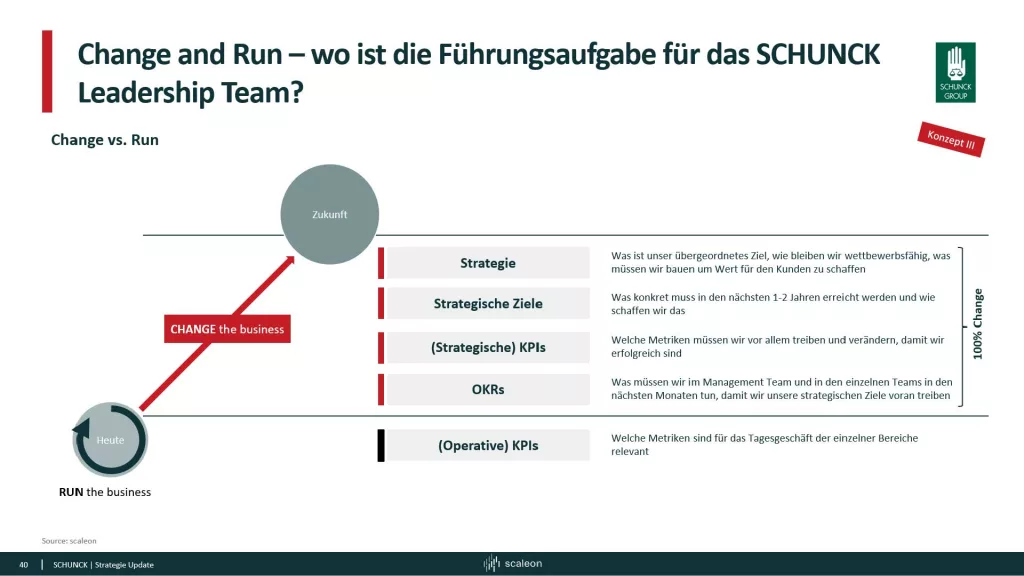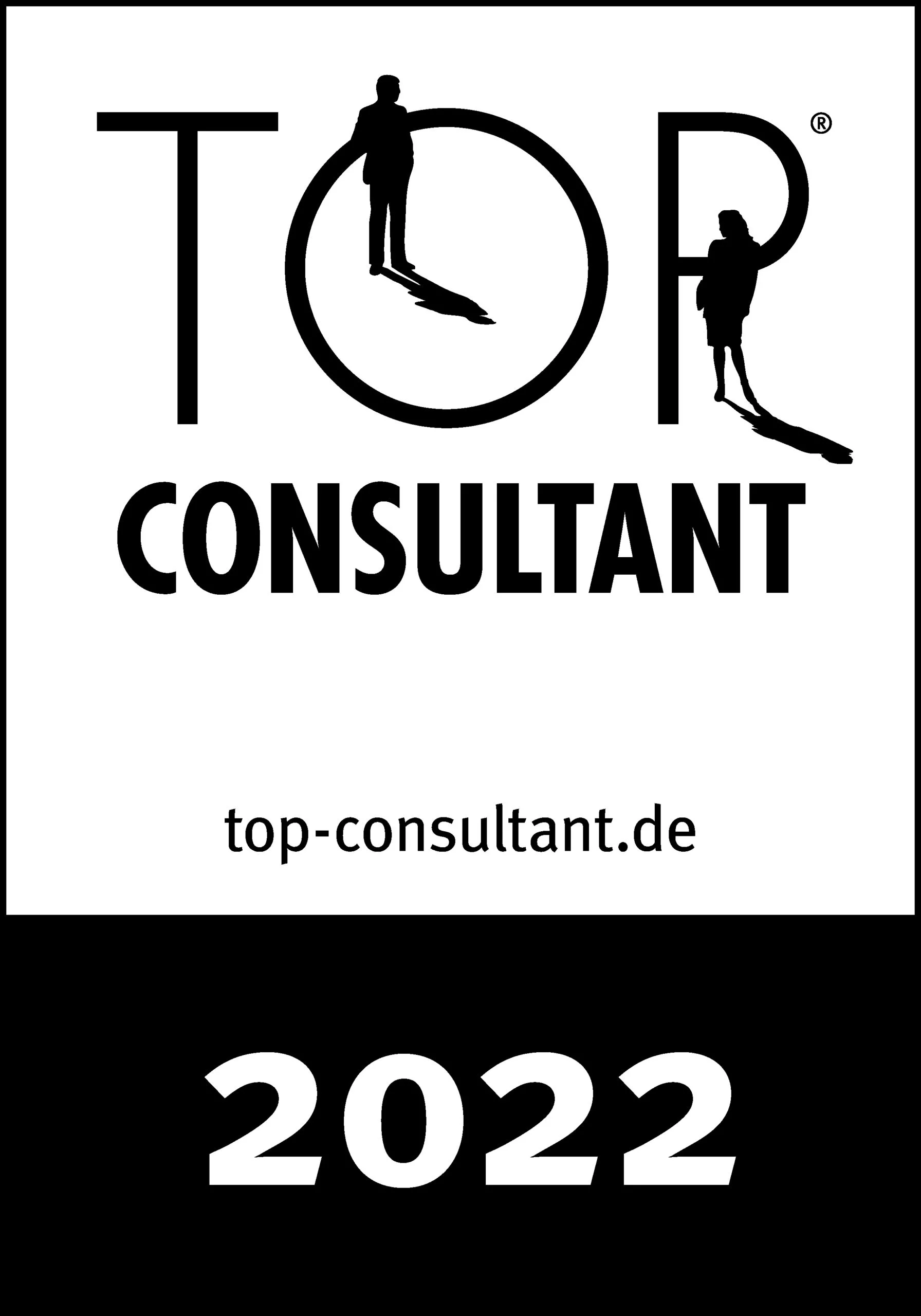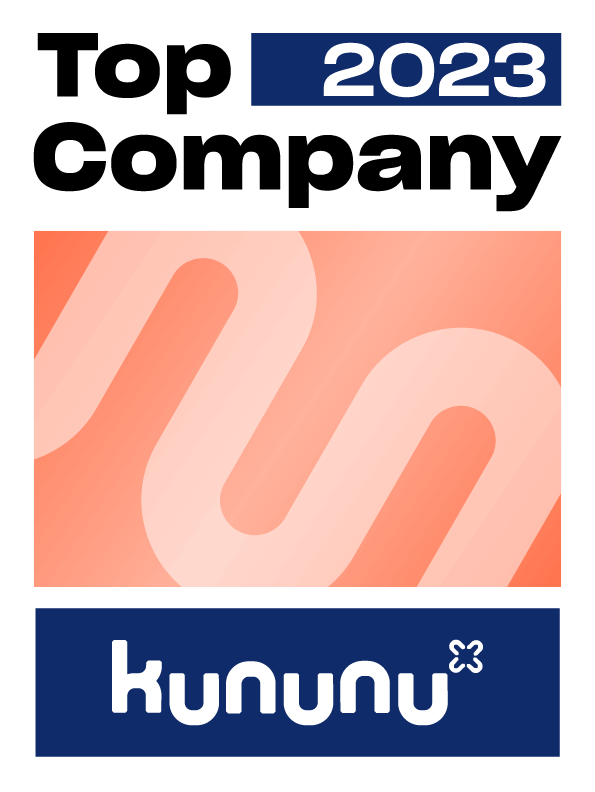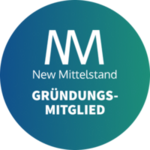Situation
With over a century of experience in providing comprehensive insurance solutions for the logistics industry, the SCHUNCK Group is now on the verge of significant digital and cultural innovation. These innovations and business models are central drivers for the upcoming growth. However, SCHUNCK is faced with a shortage of skilled professionals and the requirements of a cultural transformation. One challenging aspect within the organization was the broad spectrum of projects and priorities. The project objective included defining a simple strategic framework to serve as a guiding principle for the management team and the entire organization. Despite a detailed development of an operational driver tree on the KPI side, the difficulty lay in the fact that the strategy was not explicitly represented in the KPIs.
scaleon inspires independent problem-solving rather than serving pre-packaged solutions. Through collaboration, we gained profound insights into our strategy and were able to resolve existing contradictions. The scaleon team, with an entrepreneurial, future-oriented approach and high authenticity, has brought about a remarkable transformation in our strategic mindset.
— Richard Renner, CEO
Approach
scaleon collaborated intensively with the CEO and the entire management team over a six-month period. A critical aspect of the project was to expand requirements and minimize the workload for the management team, especially in the fourth quarter, when the workload in the insurance industry is significant
The first step was to achieve a shared understanding of the objectives and strategic challenges through structured interviews with the management team. This formed the foundation for the goals of a revised Strategy Execution approach at SCHUNCK, as well as action areas and strategic objectives.
In the second step, a series of intensive workshops were conducted to develop and refine the action areas and goals with the team. Special attention was given to the measurability of the objectives and the development of the right metrics for quantifying and objectifying strategic progress. The relevance of the strategy drafts was constantly reviewed and iterated. In the final project phase, scaleon created a communicable version of the strategy for the upcoming leadership kickoff. Additionally, an initial roadmap was developed to activate the strategy organizationally in the long term through OKRs.

Results
The strategy of the SCHUNCK Group has been significantly sharpened. Key elements of the strategy mechanics were defined, including four action areas with specific ambitions, twelve strategic objectives, and sixteen core metrics. As a result, strategic progress is now objectively measurable. As part of the project, the management team developed a shared understanding of the strategy. Although operational core business prevails at SCHUNCK, the role of strategic objectives in contrast to it was clearly defined. Another success of the project is the adoption of a roadmap for the further activation of the strategy within the organization.





